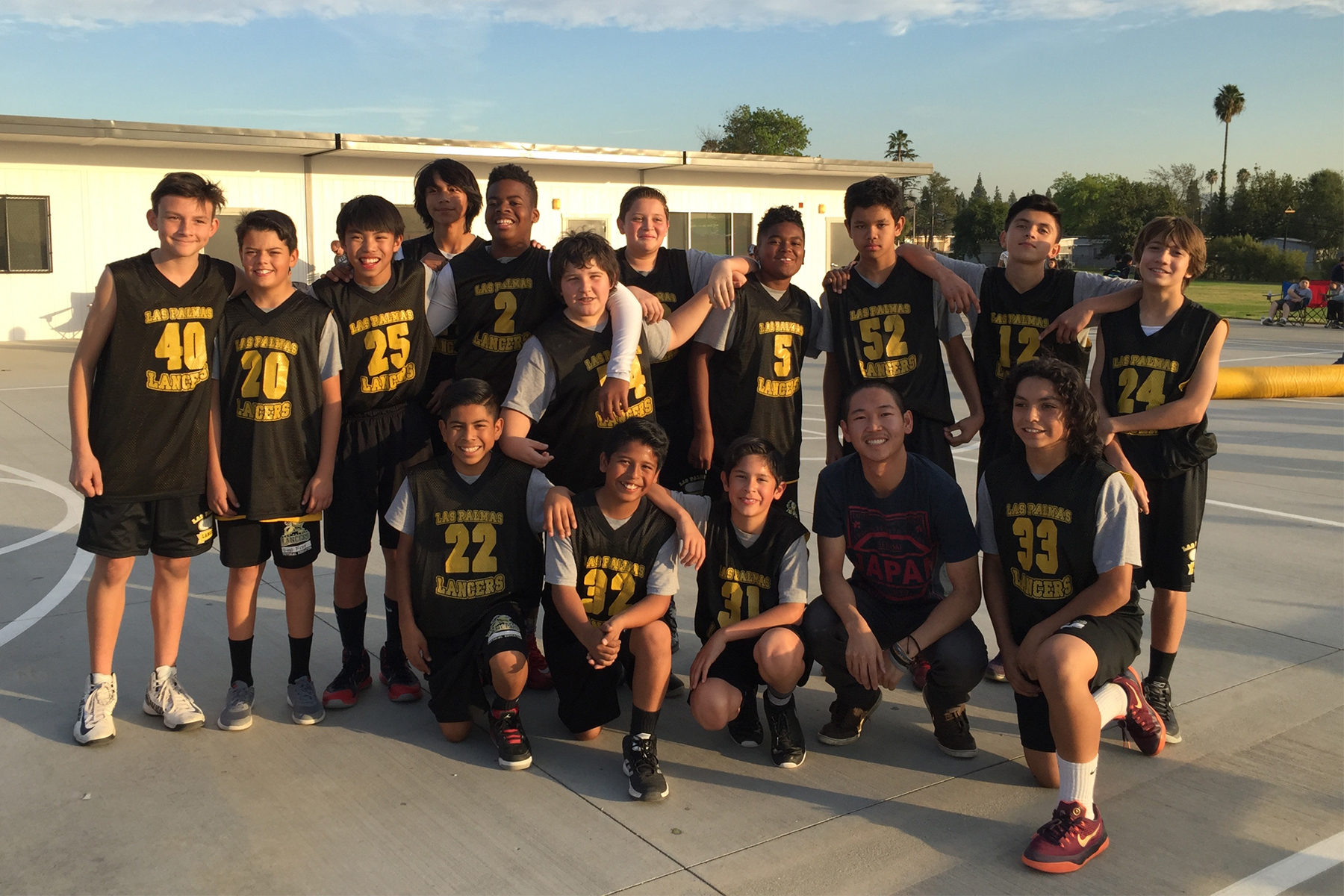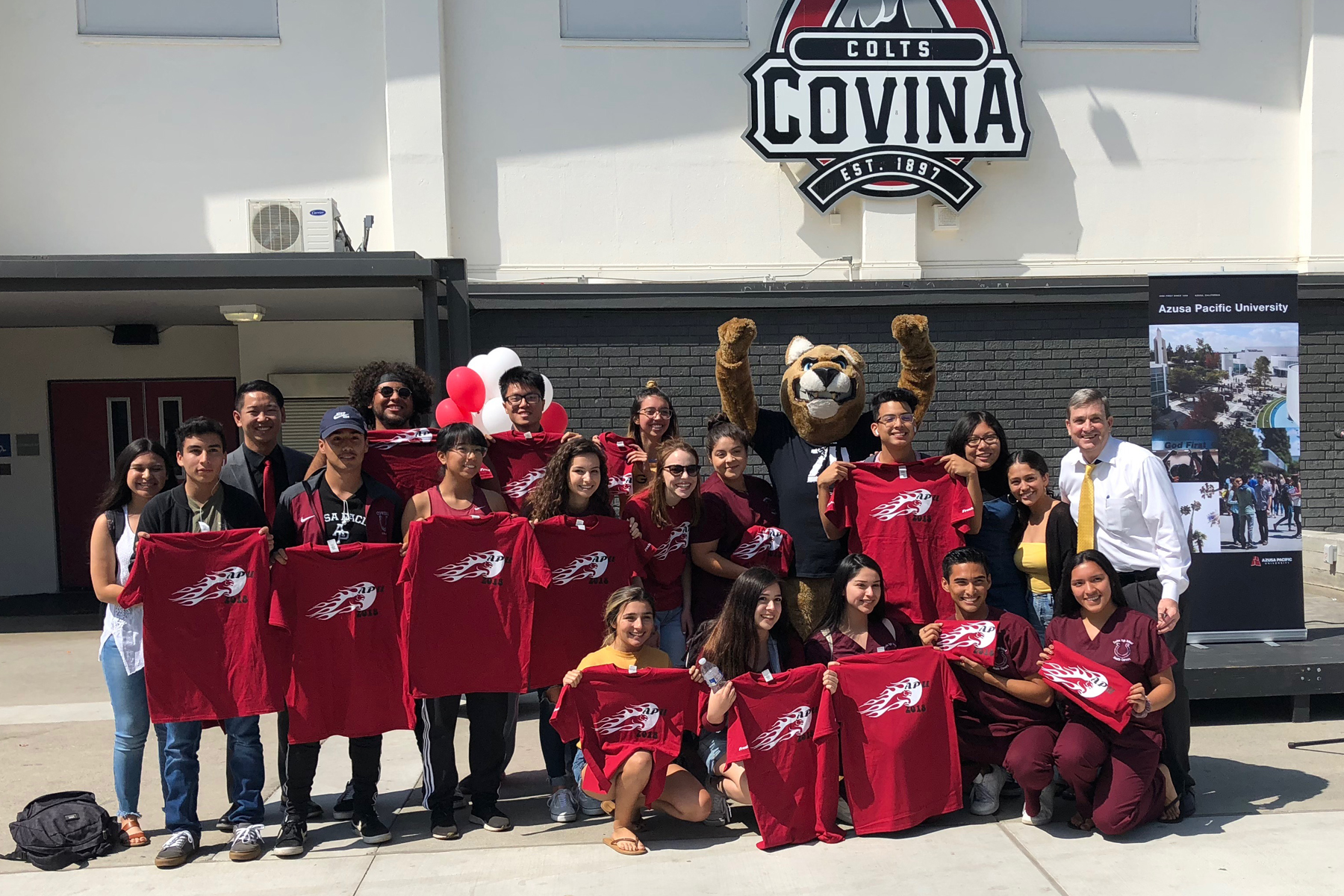Responsible Influencer

RESPONSIBLE INFLUENCER
Educators are often committed to empowering others through the virtuous engagement of social, political, religious, economic, and cultural factors, making them responsible influencers. By inclusively differentiating needs, they are able to advance equity by fostering dynamic learning environments. They can identify and analyze power dynamics and structural influences within organizational systems to effectively collaborate and empower others to advocate for justice, seek prudence, and lead with accountability. Engaging relevant networks, establishing rapport, and empowering human rights, human dignity, and human flourishing embodies the heart of a responsible influencer. Responsible influencers have the ability to provide opportunities and education that engage various dynamics and factors of injustices and structural influences.
Empowering others through virtuous engagement starts with the responsibility of leaders who humanize every individual. Being a responsible influencer is evident when a leader does not forget the humanity around them and the responsibility of their leadership in direct correlation with the people they lead (Behar, 2009). According to Northouse (2016), leadership is defined as “a process whereby an individual influences a group of individuals to achieve a common goal” (p. 6). Amidst that process, leadership can become messy, challenging, and full of conflict and directly influenced by the relationship between the leader and the people they influence. This relationship consists of a leader-member exchange (LMX), where the exchange evolves throughout the process from stranger to acquaintance and eventually becomes a partnership (Northouse, 2016). When leaders and members move through the LMX process trust is established, which has the potential for fostering dynamic learning environments.
Over the years, education has been at the forefront of change initiatives throughout time, culture, and organizations where fostering dynamic learning environments becomes essential for responsible influencers. In the book, To Know as We Are Known, Palmer (1983) states, “To teach is to create a space in which obedience to truth is practiced” (p. 88). Every journey or story consists of the following structure: a character has a problem and meets a guide who gives them advice, which either leads to a failure or success (Miller, 2017). Adult learners face many challenges throughout their lives and educators have the opportunity to be a guide on learners’ pursuit for transformation. “Education portrays the self as knower, the world as known, and mediates the relation of the two, giving the knowing self-supremacy over the known world” (Palmer, 1983, p. 22). A student-centered approach to education inspires student achievement through rigorous curriculum, relevant academia, and relational pedagogy (Isozaki, 2013). As a result, learners are transformed by love to recall and recreate the world around them. Educators make a difference in the lives of their students as they walk in obedience toward truth and into their full potential where their learning environment becomes a launching pad for the rest of their lives.
Educators are carriers of knowledge, guides to learners, actionable respondents, democratically relatable, and create spaces of authenticity (Horton & Freire, 1990) where “truthful knowing weds the knower” and “dialogue leads them to obedience” (Palmer, 1983, pp. 31, 64). They are respected and carry authority to teach, experience, and demonstrate, but are not authoritarian in order for students to be able to experience freedom in their development (Horton & Freire, 1990). Ultimately, educators are responsible for shining a light on a subject with ideas while not imposing them onto others by respecting the knowledge that people carry as their political choice and attitude (Horton & Freire, 1990). By defining and defending boundaries with care, open learning spaces are created where “the bonds of troth can be rewoven, in which we can seek truth and truth can seek us” (Palmer, 1983). Content and truth can often be intimidating, but through the enthusiasm of the teacher, “the hospitality of a teacher who has a fruitful friendship with the subject and who wants students to benefit from that friendship,” and practicing obedience to truth follows naturally in that living relationship (Palmer, 1983, p. 103).
Dialogue education begins with the educator “listening to learners, observing their context, and thereby designing teaching and learning that works for them as well as for the organization” (Vella, 2008, p. 24). With the quantitative and qualitative data gathered, clarity is provided to inform Vella’s (2008) seven design steps: who? (number of participants and leaders), why? (situation calling for the learning event), when? (the time frame), where? (the site), what? (the content), what for? (the achievement-based objectives), and how? (the learning tasks and materials) (Vella, 2008). After having a clear pathway for the presentation through the seven steps, learning tasks are developed and “designed to ensure that learners are subjects or decision-makers in their own learning” (Vella, 2008, p. 53). Overall, the natural flow of a learning task consists of four named parts of a learning task: inductive work (anchoring), input (adding), implementation (applying), and integration (taking away) (Vella, 2008, p. 62-66). These four parts connect the learners’ new knowledge to previously learned content and activate principles into practice for their various spheres of influence.
Finally, responsible influencers are committed to promoting human rights, dignity, and flourishing, which often takes place through ethical education. Ethical education creates the capacity for connectedness and development of critical thinking and tolerance of ambiguity, which are tools for disengagement to live productively and at peace in a complex world (Palmer, 1983). Responsible influencers become more aware of human rights and dignity through a quest for reason where “faith gives reason the impetus to search for meaning. Faith needs reason in its quest for truth. Reason functions as the instrument of faith” (Crook, 2013, p. 62). According to Newton (2013), amidst uncertainty, there is an obligation to contemplate and examine all options available to not act on prejudice or impulsivity but a commitment to reason. That reason empowers and is embodied within an ethical system where “there is a connection between a concept of ultimate reality and the origin of right and wrong” (Wilkins, 2011, p. 22). Ethical education helps develop ethical understanding, and Kahneman (2011) states that the “acquisition of skills requires a regular environment, an adequate opportunity to practice, and rapid and unequivocal feedback about the correctness of thoughts and actions” (p. 416). While human flourishing is synonymous to purpose found through work as a basic need in order to thrive and without meaningful work, people often experience significant loss and emptiness (Keller, p. 37). Greater meaning and purpose are to develop occupationally through “job crafting” by adapting tasks, investing in relationships, and changing the perspective of how work is understood (Becker, 2017). Responsible influencers are enabled and equipped over time to make ethical decisions interpersonally and organizationally as they face ethical dilemmas.

Throughout my senior year in high school, I dreamed of becoming a teacher because when I was in middle school, I had a teacher who made a difference in my life and saw my potential. When deciding what I wanted to do for the rest of my life, I wanted to be a teacher so that I could also make a difference and see people reach their full potential. After years of substitute teaching and coaching basketball at Las Palmas Middle School, I had the opportunity to live out that dream. Now I find myself providing access to higher education for those same students who are now in high school and are guaranteed admission and financial aid to students in the Covina-Valley Unified School District through the Memorandum of Understanding to attend Azusa Pacific University. As a responsible influencer, there are so many avenues and opportunities that leaders can influence people, cities, and nations. Wherever and whatever I am called to do, I know that living out kingdom value is the beginning and the end of being a responsible influencer.
Being a kingdom-minded responsible influencer, I had the opportunity to develop a multi-week course design titled, “The Formation of a Kingdom Minded Admissions Professionals,” in my Leadership for a Learning Environment (LDRS 571) class. Overall, this multi-week course design is committed to developing responsible influencers who are admissions professionals seeking to become kingdom-minded in their spheres of influence from their office to their territories. Learners will have the opportunity to develop an Immediate Strategic Vision, Intentional Best Practices, and Integrated Spiritual Disciplines in their role as admissions professionals. These three courses are designed to cultivate dialogue and development for opportunities to see the mundane become meaningful, the meaningful missional, and the missional miraculous in everyday tasks.
Education is one of the most influential spheres in the world today as students and communities are transformed by the impact of a student’s education and trajectory that has the potential to not just change the people around them but their city, nation, and the world. Professionally, I had the opportunity to write a paper on “Becoming Kingdom Minded Territory Managers” in my class, Ethical Decision Making (LDRS 563), which addresses the challenge of higher education recruitment and proposes a Kingdom-minded approach to territory management while reevaluating a current decision-making process in place for fall recruiting—resulting in a culture dedicated to becoming territory managers who leverage five key recruiting strategies empowered by a compelling vision with theological implications that engages the challenge of regaining access to higher education for minorities and effectively maximizing the recruitment of students. As a responsible influencer, committing to Kingdom values fuels the motivation, empowerment, and influence professionals have in their workplace.

Those who empower and engage others as responsible influencers are reflective thinkers whose foundational values are consistent in educating the world around them. As I continue to develop as a responsible influencer, my goal is to create and maintain a journal of admissions testimonies and stories weekly to help empower an admissions culture of remembering purpose and pursuit throughout the journey. In addition, I hope to prepare a presentation to present at the next Southern Council for Christian Colleges and Universities (SCCCU), and North American Coalition for Christian Admissions Professionals (NACCAP) conferences by April 2019. Finally, as I continue to develop as a responsible influencer, my goal is to develop a series of reproducible cross-disciplinary curriculum on being a Kingdom Minded Professional by 2020. By accomplishing these goals, responsible influencers will be mobilized across seven culturally influential spheres: business, government, media, entertainment, family, education, and religion.
References
Becker, Stevan. (2017). “Job crafting:” Cultivating our vocation at work. Retrieved from https://tifwe.org/job-crafting-cultivating-our-vocation-at-work/
Behar, H. (2009). It’s not about the coffee: Leadership principles from a life at Starbucks. New York: Portfolio.
Crook, R. (2013). Introduction to Christian ethics (6th edition). Upper Saddle River, NJ: Prentice Hall Publishing, Inc.
Horton, M., & Freire, P. (1990). We make the road by walking: Conversations on education and social change. Temple University Press.
Isozaki, C. (2017). The Effectiveness of the MOU Partnership (Unpublished research paper). Azusa Pacific University, Azusa, CA
Kahneman, D. (2011). Thinking fast and slow. New York: Farrar, Straus and Giroux.
Keller, T. (2012). Every good endeavor: Connecting your work to God’s work. (Kindle Edition). Retrieved from Amazon.com
Miller, Donald. (2017). Building a StoryBrand: Clarify your message so customers will listen (Kindle Edition). Retrieved from Amazon.com
Newton, L. (2013). Ethical decision making: Introduction to cases and concepts in ethics. New York, NY: Springer Publishing.
Northouse, P. G. (2016). Leadership: Theory and practice (Seventh ed.). Los Angeles, CA: SAGE Publications.
Palmer, P. J. (1983). To know as we are known: Education as a spiritual journey. HarperOne.
Wilkins, S. (2011). Beyond bumper sticker ethics: An introduction to theories of right and wrong. Downers Grove, IL: IVP Press.